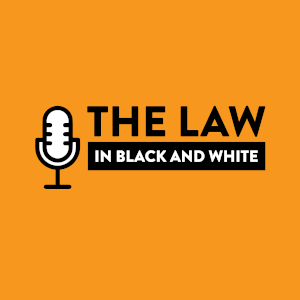By: Chase Tavernier
On July 27, 2022, Delaware’s governor signed Senate Bill 273 (effective August 1, 2022), which included a significant and controversial change to Delaware’s General Corporation Law (“DGCL”). This amendment consisted of an expansion of the pre-existing exculpation protection, available under §102(b)(7), to qualifying corporate officers. This amendment comes after nearly four decades of application of the original §102(b)(7) which was strictly limited in application to members of a corporation’s board of directors. Due to the significance of this controversial change to the DGCL, this blog post will address two questions: 1) what are the precipitating factors that caused the Delaware legislature to feel it necessary to adopt this amendment after all this time, and 2) how will the new language apply to corporate officers seeking exculpation for breaches of fiduciary duty, i.e. what are the limitations of the new amendment.
What Were the Likely Underlying Causal Factors that Lead to the Legislative Change to §102(b)(7)
In determining what were the likely factors that brought about this legislative change, it is helpful to first consider the underlying reasons for the original enactment of §102(b)(7). A law review article by the University of Columbia, along with many concurring legal scholars, believes that the reason for the enactment of §102 was due to an existing “crisis” that surrounded corporations involving director and officer (“D&O”) liability insurance. See Karen Leigh Chapman, Statutory Responses to Boardroom Fears, 1987 Colum. Bus. L. Rev. 749 (1987). Specifically, this “crisis” consisted of skyrocketing premiums for D&O liability insurance combined with decreasing coverage of potential liabilities under insurance policies. This negative combination created an environment where corporations were unable to obtain proper coverage due to expense or the lack of availability of necessary policy coverage. The culmination of these factors resulted in many corporations going without adequate D&O insurance, or any insurance at all. This then caused many qualified individuals to refuse to sit on corporate boards as many believed the compensation for such positions was not proportional to the potential liability that could result from failing to meet the requisite high standard of care required by law. Id.
In considering premiums prior to the recent amendment to § 102(b)(7), according to S&P global, a provider of information relating to international capital and commodity markets, premiums for D&O insurance doubled in the period from 2019 to 2021. More specifically, the top D&O insurance writers Axa SA and Chubb Ltd.—who collectively controlled 24.2% of the U.S. market as of 2021—reported double-digit premium increases of respectively 57.2% and 24.8% during this time.[1] In addition to these staggering statistics, Marsh, a global professional services firm with operations in insurance brokering and risk management, recognized that public companies were also facing narrowing coverage as underwriters were no longer willing to provide certain coverage enhancements that had previously available. Marsh cites to several reasons for the change in the D&O insurance market, some of which include the effects of the COVID-19 pandemic as well as ever-increasing costs associated with securities litigation and defense as public companies were targeted in more than 400 suits each year for the period 2018-2020.[2]
Upon consideration of the primary reasons for the enactment of the original §102(b)(7), such reasons likely played a strong role in the recent amendment and expansion of coverage as these issues have arisen once again. Moreover, if this was not enough to warrant a change, it could be that such a change was also a result of corporations facing steadily increasing litigation costs combined with the negative effects of the ongoing COVID-19 pandemic, which in and of itself has had an incredibly negative impact on corporations in general. Therefore, in consideration of these various factors and their effects, it appears this amendment was enacted in an effort to stifle or prevent a “crisis” from ensuing similar to what we witnessed in the years leading up to §102(b)(7)’s enactment.
The Limited Application of Amended §102(b)(7) Allowing for Officer Exculpation
At the outset, this change to officer liability poses a serious threat to officer accountability by shareholders. If officers are able to seek exculpation for their breaches of fiduciary duties, in addition to the board of directors’ right to do so, then who will shareholders hold accountable when the interests of the corporation is harmed? Importantly, while this is a viable question that likely exists in the minds of numerous shareholders in the wake of this amendment, it should be noted that extensive limitations have been incorporated into the amendment that seem to try to protect shareholders rights and ensure officer accountability to an extent.
Officer Exculpation Provisions are not Self-Executing
Under §102(b)(7), a corporation may include a provision in its articles of incorporation that allows for the limitation or elimination of personal liability of an officer to the corporation or its stockholders for monetary damages resulting from a judgment against such officer, holding that a breach of fiduciary duty incurred while acting in their role as officer. However, such provisions are not self-executing and instead require affirmative action on behalf of the corporation to either include such a provision in the articles of incorporation or make an amendment to the existing articles of incorporation.
In adopting the provision via the latter approach in the line above, a corporation must do so in accordance with organizational documents, such as the original articles of incorporation and/or bylaws, and the DGCL. This may require several steps including 1) board action adopting a resolution, 2) submission of the proposal to the shareholders with written notice and delivery to the secretary of state, and finally 3) a majority approval of the shares entitled to vote—unless the organizational documents say otherwise. Importantly, it should be noted that even upon the proper and successful amendment of a corporation’s articles of incorporation, an exculpation clause will not affect an officer’s liability for an act or omission occurring before such amendment was effective.
Who Constitutes an “Officer” Under Section 102(b)(7)
As used in §102(b)(7), an “officer” is defined as and limited to those individuals who have consented to service by the delivery of process to the registered agent of the corporation in accordance with §3114(b) of Title 10. Section 3114(b) further defines an “officer” as including those individuals who meet any of the following requirements: 1) are or was the president, CEO, COO, CFO, CLO, controller, treasurer, or chief accounting officer, 2) is or was identified in the corporation’s public filings with the SEC as one of the most highly compensated executive officers of the corporation, or 3) has consented to be identified as an officer by written agreement with the corporation. In reviewing this language, the term officer—for purposes of §102(b)(7)—seems to be limited to those high-level executives that were appointed by and report to the board of directors and oversee the day-to-day running and maintenance of a corporation.
What Actions are Eligible for Exculpation Under § 102(b)(7)?
In 2009, the Delaware Supreme Court explicitly held in Gantler v. Stephens that officers of a corporation owe the same fiduciary duties of care and loyalty as directors. Gantler v. Stephens, 965 A.2d 695 (Del. 2009). However, it was not until the amendment of §102(b)(7) that officers could avail themselves of the similar protections available for directors, namely exculpation provisions in a corporation’s articles of incorporation. Yet even though these protections now exist, these exculpation provisions are limited in application to officers and differ when applied to breaches of fiduciary duties committed by officers as compared to directors.
Under §102(b)(7), a corporation’s articles of incorporation may similarly eliminate director and officer personal liability to stockholders or the corporation for money damages resulting from a breach of duty unless the individual: 1) breached their duty of loyalty owed to the organization, 2) acted, or failed to act, in good faith, 3) acted with intentional misconduct or knowing violation of the law, or 4) received an improper personal benefit from a transaction entered into on behalf of the corporation. However, §102(b)(7)(v) sets out a subsequent limitation applicable only to officers, which provides that an officer may not avail themself of the protections afforded by an exculpation clause in any action by, or in the right of, the corporation.
In interpreting this limitation, it expressly restricts an officer from seeking exculpation from liability, even where such a provision exists in the articles of incorporation, in any action involving a derivative suit, as such a suit is by definition a suit brought by or on behalf of the corporation. However, this limitation does not apply, and exculpation may be sought, where a shareholder instead initiates a direct claim. A direct claim is a claim brought upon a shareholder’s own behalf as shareholders have a right to enforce any legal duties owed to them by corporate officers through direct individual lawsuits. The appropriate test for determining if a direct claim exists was set forth in Tooley v. Donaldson, Lufkin & Jennette, Inc., which requires that a stockholder demonstrate a duty was owed to them that was breached by the defendant resulting in an injury to the shareholder individually as opposed to the corporation generally. Tooley v. Donaldson, Lufkin & Jennette, Inc., 845 A.2d 1031 (Del. 2004).
In recent years there has been much litigation as to whether such a limitation applies where a suit has been made against an officer involving both derivative and direct claims. However, the Delaware Supreme Court recently settled this issue when it held that where a claim is perceived as dual-natured, in that it involves derivative claims on behalf of the corporation and direct claims by the shareholder individually, it will be deemed exclusively derivative without exception. Brookfield Asset Mgmt., Inc. v. Rosson, 261 A.3d 1251, 1280 (Del. 2021) (holding that Tooley is the appropriate test for determining whether a claim is direct or derivative, as it cannot be both, thereby overruling prior precedent recognizing limited exceptions). As a result, §102(b)(7) may only be utilized by officers facing liability for direct claims alleging breach of fiduciary duty, and not in actions involving derivative claims brought by or in the right of a corporation.
Section 102(b)(7) Only Applies to Monetary Damages
Finally, § 102(b)(7) makes it abundantly clear that while a corporation may include an exculpation provision in its articles of incorporation to limit or eliminate officer liability, the only liability that actually may be so eliminated or limited is the liability for monetary damages. Exculpation provisions themselves do not change the fact that an officer’s act constituted a breach of fiduciary duty. Rather, the provisions exculpates the officer solely for the monetary damages ordered by judgment. That being said, an exculpation provision is wholly inapplicable to the extent that equitable remedies are ordered, and as a result officers will be subject to and bound by any equitable remedies ordered in a judgment.
Conclusion
In conclusion, the amendment to §102(b)(7) now authorizes the availability of exculpation protections to certain corporate officers on a very limited basis. After nearly four decades of disparate treatment between officers and directors, despite being subject to and bound by the same fiduciary duties, it would seem they are finally being offered the availability of similar protections under the law. While it is not clear at this time, it will be important for legal scholars to be on the lookout for what effects this amendment will have on officer accountability and liability in the future, even with its limited availability.
[1] https://www.spglobal.com/marketintelligence/en/news-insights/latest-news-headlines/d-o-premiums-grow-38-5-in-2021-loss-ratio-falls-to-multiyear-low-70106981
[2] https://www.marsh.com/us/services/financial-professional-liability/insights/five-directors-and-officers-priorities-for-2021.html
Like what we post? Follow us on LinkedIn for more great content!





